on partner site
Best business loans for minorities in February 2026
on BusinessLoans.com
on Bankrate
on Bankrate
on Bankrate
on Bankrate
on Bankrate
on Bankrate
on Bankrate
on Bankrate
on Bankrate
How Bankrate works

How Bankrate works
Get lender details
Bankrate evaluates multiple lenders using our methodology to determine the top lenders for minority-owned businesses. We list top pros and cons and general details so you can get to know what is available.
Tell us the basics
Click "get personalized rates" and fill out some general information so we can find the lenders that are the best fit for your circumstances and needs.
Get matched with lenders
Bankrate matches you with lenders you may qualify for, letting you easily apply and get funds.
A closer look at Bankrate's top loans for minorities
Best for flexible repayments: iBusiness Funding
With flexible terms ranging from just six months to up to seven years, iBusiness Funding is a good choice for qualified applicants.
Pros and cons
- Multiple repayment options
- Low revenue requirements
- Can help you build business credit
- Requires two years in business
- No unsecured loan option
- High origination fee
Best online lender: OnDeck
As an online-only lender, OnDeck offers a fast, streamlined application process for borrowers. And with loan amounts up to $250,000, they can meet the needs of most small businesses.
Pros and cons
- Same-day funding and fast approvals
- Accessible to a variety of borrowers
- Helps build business credit
- High annual percentage rates (APRs)
- Shorter repayment terms
- Low loan amounts
Best for secured credit building: Bank of America
If you are looking to build credit for your small business, Bank of America might be an attractive option. Its cash-secured business line of credit is a way for businesses to build credit, and its physical locations across the country mean you can get valuable in-person time with a loan officer.
Pros and cons
- Free business credit score monitoring
- No collateral needed
- Bank customers can apply online
- Need two years in business
- $150 origination fee
- High credit score requirement
Wells Fargo: Best for unsecured lines of credit
Wells Fargo actively supports underserved communities, aiding 152,000 small businesses through its Open for Business Fund. Its unsecured lines of credit cater to businesses of various ages, offering a revolving credit line of up to $150,000 for businesses operating for two years or more and another option for newer businesses, with both lines earning rewards on eligible purchases.
Accion Opportunity Fund: Best for low-interest loans
Accion Opportunity Fund is a nonprofit specifically developed to advance racial, gender and economic justice for all. Its working capital loan ranges from $5,000 to $250,000, with rates starting at 8.49%. That’s decidedly on the low end for business loan rates, meaning you can get access to the capital your business needs with less cost over the life of the loan.
Kiva: Best for microloans
Kiva made a name for itself offering microloans through a platform that allows you to crowdfund the capital your business needs. If you’re looking for a loan of $15,000 or less, Kiva could give you a way to get it with 0% interest.
Huntington Bank: Best for SBA loans
Huntington Bank is one of the top SBA lenders in the country. Its Lift Local Business program helps provide minority-owned businesses with better access to business loans and lines of credit. These loans come with low credit score requirements, longer terms and zero origination fees. Borrowers also get access to free entrepreneurial courses valued at $1,500.
Chase Bank: Best for special purpose credit program
Overview: JPMorgan Chase put its money where its mouth is with a $30 billion commitment to racial equality. It offers SBA loans, term loans and lines of credit, but its special purpose credit program specifically targets locations with underserved communities. It has funded more than six million loans to small and mid-sized businesses. If you live in one of the country’s bigger underserved communities, this program might make it easier for you to get access to capital.
OneUnited Bank: Best Black-owned bank
As both the first Black-owned digital bank and the largest Black-owned bank in the country, OneUnited Bank knows what it means to operate in and for historically disadvantaged communities. In partnership with Lendistry, business owners can apply for a business loan even if they don’t have a OneUnited Bank account. To qualify, you’ll need at least two years in business and take out a minimum of $50,000.
Hope Credit Union: Best for Southern businesses
The HOPE Business Loan Program facilitates access to up to $250,000 in loans for businesses seeking to start, grow, or expand. This aligns with Hope's mission to support sustainable enterprises that create jobs, benefit local communities and improve infrastructure in underserved areas.
U.S. Bank: Best for personalized experience
The Business Diversity Lending Program from U.S. Bank provides minority-owned businesses with up to $2.5 million, a hefty sum compared to most business loans. Loan options include term loans, lines of credit, owner-occupied commercial real estate and investment loans.
What are business loans for minorities?
Business loans for minorities are loans that are issued by a variety of different lenders — including SBA lenders, nonprofits and banks — and are designed to help members of historically underserved communities access capital for their business.
What qualifies as a minority-owned business?
The definition of a minority-owned business varies, but generally, a minority-owned business is any small, for-profit business that is at least 51% owned, operated or controlled by a member of a minority group. Lenders and certification programs may define minority groups differently, although the the Minority Business Development Agency (MBDA) considers members of minority groups as individuals who identify as:
- Black/African American.
- Hispanic/Latin American.
- Asian-Indian.
- Asian-Pacific.
- Native American.
Depending on the lender and their program, business loans for minority-owned businesses may also be extended to other underserved communities, including women, veterans and LGBTQ+ community members.
How to get certified as a minority-owned business
There are several federal programs to get certified as a minority-owned business:
- National Minority Supplier Development Council (NMSDC). The NMSDC offers several types of minority-owned business certifications, depending on what type of business you own. To apply for certification, you'll need to submit an online application, business financial documents, proof of eligible minority ethnicity and other business information. NMSDC certifications take about 45 days to complete, last one year and can cost anywhere from $250 to $1,700, depending on the revenue of your business.
- Disadvantaged Business Enterprise Program (DBE) . The Department of Transportation (DOT) offers a program for businesses that helps certified businesses access federal transportation contract opportunities. The DOT uses the SBA's definition of a disadvantaged business, which include women, Black or African American, Hispanic American, Native American, Asian-Pacific American or Subcontinent Asian-Pacific American business owners.
- Small Business Administration 8(a) Program. The SBA's 8(a) Business Development Program is a training and development program that helps disadvantaged small businesses win federal contracts.
In addition to these national certification agencies, you may be able to get certified through your state government as well.
Requirements for a minority business loan
Many lenders won't require you to be certified as a minority-owned business to qualify for a minority business loan. That means that qualification requirements generally don't differ from other traditional loans. Lenders will likely look at:
- Personal and business credit scores.
- Time in business (you usually need at least one to two years).
- Business finances (existing debts, annual revenue).
- Industry (some lenders won’t work with businesses in higher-risk industries).
Reasons minority-owned business struggle to access capital
Research by the public policy think tank Third Way found five reasons why minority business owners struggle to gain access to capital:
- Lack of access to community banks.
- Fewer collateral options to secure loans.
- Stricter underwriting criteria.
- Fewer banking relationships.
- Less incentive for banks to offer the types of loans that benefit minority business owners.
Types of minority business loans
Business loans for minorities can come in a lot of shapes and sizes. You can find low-interest business loans, fast business loans — even business loans for a 500 credit score. Here are a few of the broad categories you may want to explore for financing your company needs.
Alternatives to business loans for minorities
Business grants
As a minority-owned business, you’re positioned to have access to more grants. In fact, because you generally don’t need to repay them, you might want to explore business grants for minorities before you look into a loan.
Crowdfunding
Crowdfunding can help you access working capital by allowing you to raise small sums of money from a lot of people, but it does require some hustle to get people on board and willing to give their money.
Peer-to-peer lending
Peer-to-peer (P2P) lending entails getting matched with an investor — either an individual, a company or a group of people — willing to back your business. This type of lending usually comes with looser eligibility requirements than traditional business loans.
Business credit cards
If you want a revolving line of credit, you don’t have to stop at a business line of credit. Although they may come with higher interest rates than lines of credit, business credit cards are often easier to get. Plus, they might come with rewards programs and lengthy interest-free periods. And if you’re able to pay off your balance in full each month, this is a free or low-cost (depending on the credit card’s fees) way to get liquid capital in your hands.
Additional resources for minority-owned businesses
Minority small business owners may be able to get free industry expert advice, alternative minority small business loan options and educational resources from the following nonprofit or governmental organizations.
Business Consortium Fund
The nonprofit business development organization Business Consortium Fund (BCF) develops and funds certified minority-owned businesses, especially those needing funding for supply chain contracts. Low-income earners may qualify for up to $3,000 in loan closing costs.
Minority Business Development Agency
The federal MBDA supports minority-owned businesses, including helping to secure capital, win contract bids and identify new business growth opportunities.
SBA HUBZone Program
This program offers certification to small businesses looking to win government bids in underutilized zones called HUBZones. HUBZone-certified businesses can compete for targeted government contracts and receive a 10% preference on price evaluations.
SBA Office of Native American Affairs
This SBA office is dedicated to providing free technical support and other resources to small business owners who are Alaskan Natives, Native Hawaiians or American Indians.
T.H.R.I.V.E. Emerging Leaders Reimagined
The SBA Office of Entrepreneurial Development provides customized training and networking resources through the Emergency Leaders program to established small businesses with high potential for growth and success working in underserved cities.
Office of Small and Disadvantaged Business Utilization (OSDBU)
The OSDBU operates under the Department of State and works with industry partners, acquisition corporations and program offices to help disadvantaged small businesses win prime and subtracting contracts.
Bankrate Insight
Bridge, a platform built by Citi connects people to regional banks, CFDIs and MDIs to get the business capital they need. Today, Bridge has more than 70 lenders in its network, including women-owned and black-owned institutions working to help underserved communities.
Frequently asked questions about business loans for minorities
How we chose our best business loans for minorities lenders
Bankrate's trusted small business loan industry expertise
57
years in business
30
lenders reviewed
22
loan features weighed
770
data points collected
To choose the best business loans for minorities, we researched banks with relaxed eligibility requirements and programs that are specifically geared toward helping minority business owners. We then considered features that make loans affordable and accessible to businesses with different characteristics and needs, including interest rates, whether the loans are secured or unsecured, minimum annual revenue and fees. These lenders were also evaluated for notable qualities such as funding speed and nontraditional eligibility criteria.
- Small-business
- Small-business loans


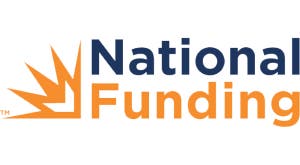
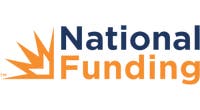
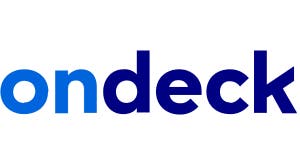
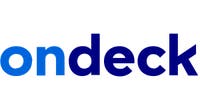


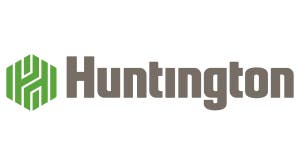
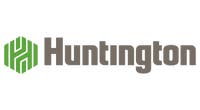
.png?optimize=medium&format=pjpg&auto=webp)
.png?optimize=medium&width=200&format=pjpg&auto=webp)
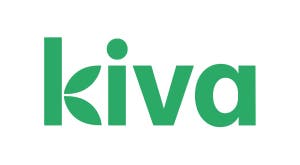
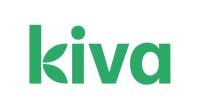
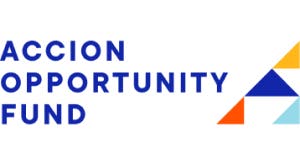
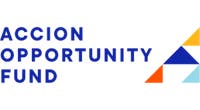
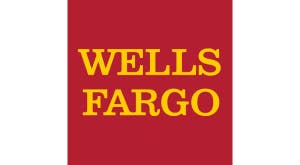
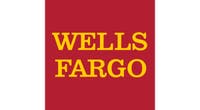


.png?auto=webp&fit=&width=200&format=pjpg)
